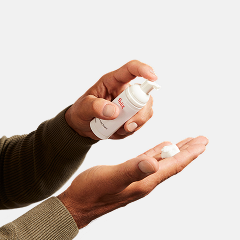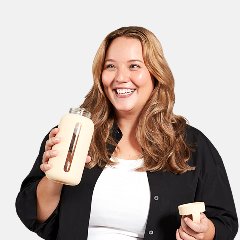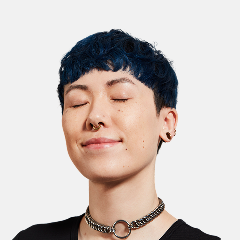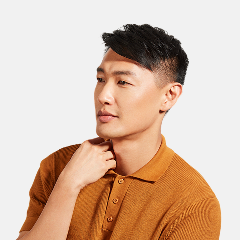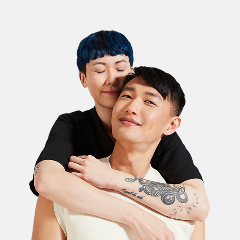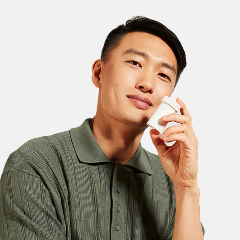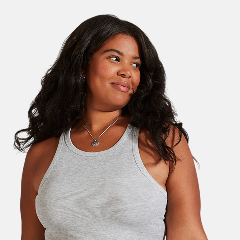Download the Felix App
Earn reward, visit our shop and get exclusive offers on the app
Download now


Through Felix, you can get Alesse® prescribed by a licensed healthcare practitioner with free delivery to your door.
Alesse is an oral contraceptive (birth control) medication that is a combination of two female sex hormones, levonorgestrel and ethinyl estradiol.
Alesse is primarily used to prevent pregnancy in people assigned as female at birth.
In some cases, Alesse is also used to treat moderate acne in people over the age of 14, who have been assigned female at birth.
For more resources, including a full list of the risks and benefits of Alesse, please review the product monograph.
As a contraceptive and as a treatment for acne, Alesse works through gonadotropin suppression.
As a contraceptive, this prevents eggs from being released during the menstrual cycle, which prevents pregnancy.
As a treatment for acne, it’s believed that androgenic action, including stimulation of sebaceous glands, is necessary for acne to form. Suppressing gonadotropin leads to decreased ovarian production of the androgens that are believed to cause acne.
Alesse’s primary use is as a form of contraceptive (birth control) that’s taken orally.
In some cases, Alesse is also used in the treatment of moderate severity acne, in people that were assigned female at birth and are over the age of 14.
Alesse prescriptions are available as both 21-day (Alesse 21) and 28-day (Alesse 28) blister packs.
Each kind of Alesse includes 21 pink ‘active’ pills, but in Alesse 28, there are an additional 7 white ‘inactive’ pills.
Each type of Alesse follows a 28-day cycle, in which you take one pink pill per day for 21 consecutive days.
If you have the Alesse 28, you’ll then take one white pill per day for an additional 7 days to finish the cycle. With Alesse 21, you would take nothing during the 7 days between the end of one cycle and the beginning of the next.
When taking the Alesse pills, they should be taken at the same time of the day, each day. This will help maximize the effect of the medication.
The most common side effects of taking Alesse include:
If you start to experience any of these side effects, be sure to talk to your healthcare practitioner from Felix. They may be able to suggest alternative medications that could work better for you
There are a number of people who shouldn’t use Alesse. Don’t take this medication if you have or have ever experienced:
You also shouldn’t use Alesse if you’re:
In addition to these people, there are other patients who should be extra cautious when using Alesse.
Be sure to talk to your healthcare practitioner at Felix before requesting an online Alesse prescription if you:>
Further reading

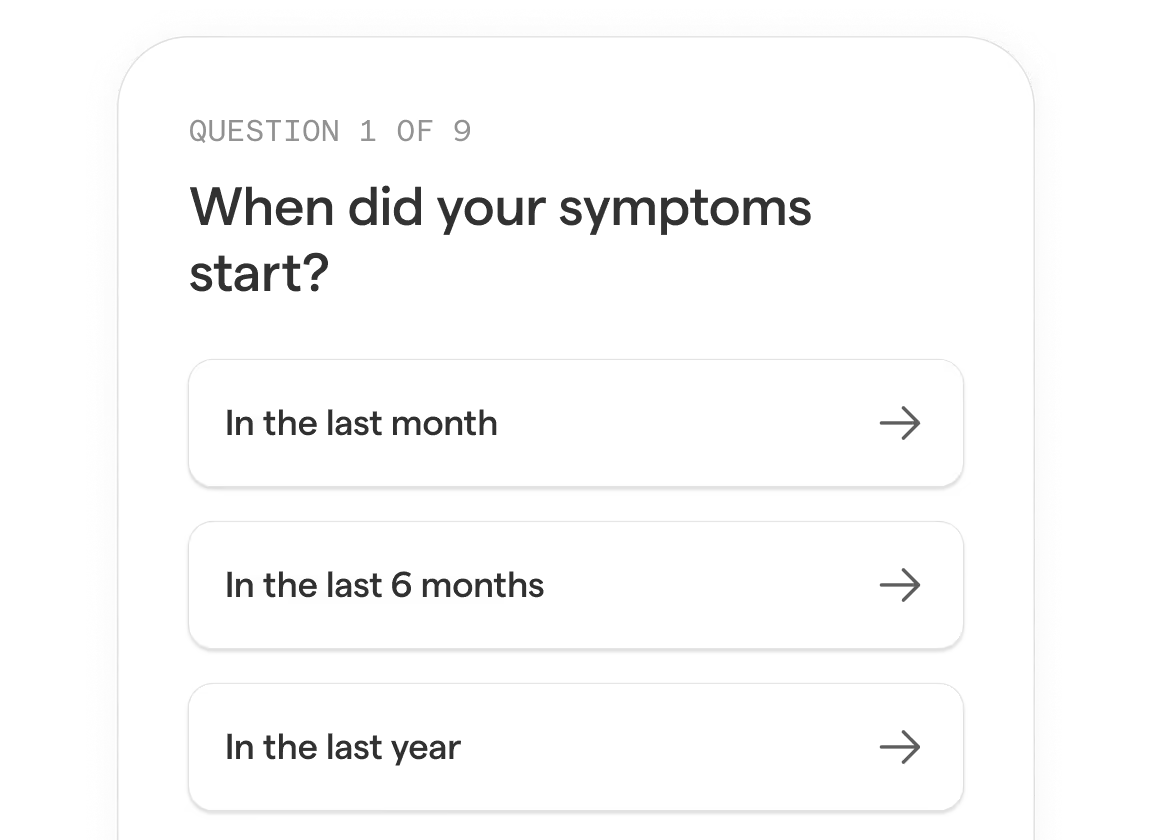
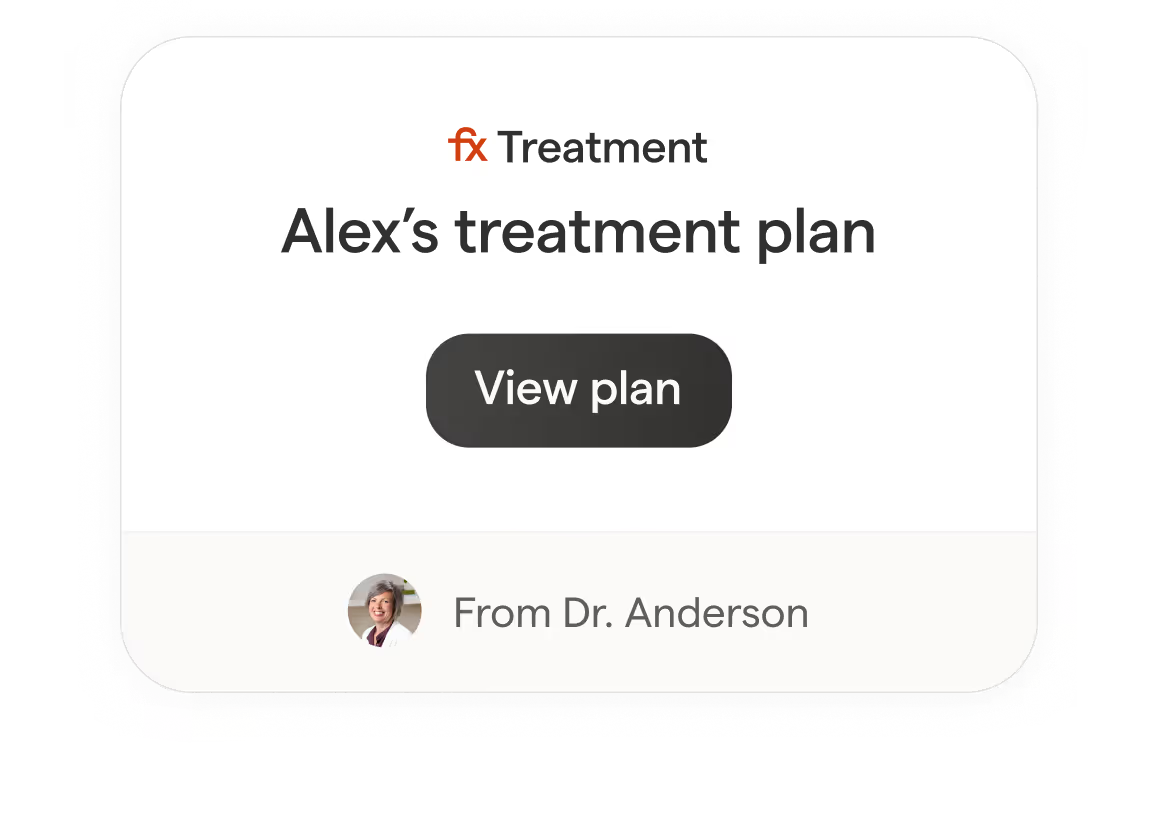
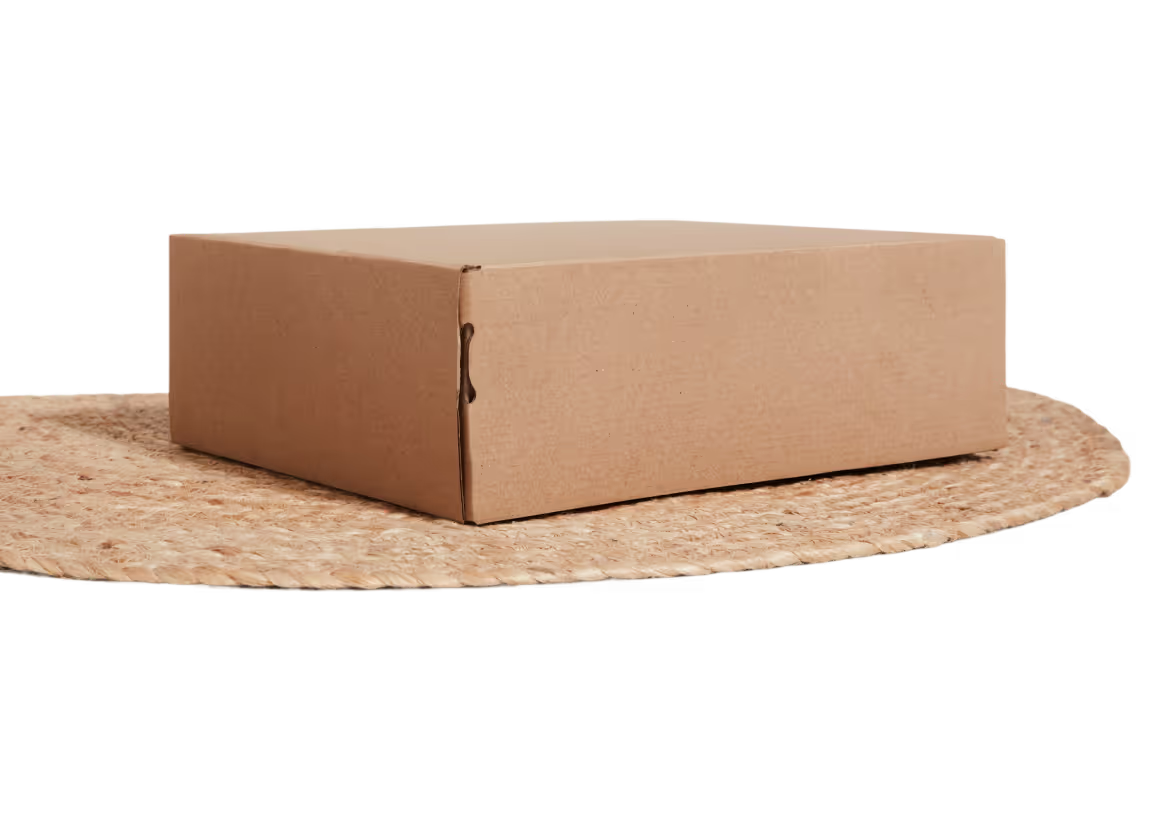










There are many different options for birth control. You can read learn more about deciding which birth control option is right for you here.
Alesse is a combination pill containing a combination of estrogen and progestin. Pills containing both hormones are called combined estrogen-progestin oral contraceptives (COCs), which people generally refer to when they talk about “the pill.”
Alesse is considered a low-dose COC and a safe and reliable contraceptive for most women. It contains 20 mcg of ethinyl estradiol, a synthetic estrogen, and a progestin - levonorgestrel. The low dose doesn’t make Alesse any less effective than higher-dose oral contraceptive pills.
The low estrogen content in Alesse can be beneficial for people experiencing side effects such as headaches, nausea, mood changes, and breast tenderness. However, it’s worth noting that a low dose of estrogen can also increase the risk that you will experience spotting. Spotting, also known as breakthrough bleeding, is light vaginal bleeding that occurs between periods.
Higher dose estrogen pills, such as Mirvala, can be a good alternative if you experience spotting on Alesse. Different COCs also contain different types of progestin. Through discussion with your healthcare practitioner and trial and error, you can determine if Alesse is a good choice.
Take Alesse tablets orally, every day at approximately the same time of day. The tablets should be taken in order.
You may start the pill on any day of your cycle, but you should use backup birth control (like condoms) for two weeks until the pill becomes effective. If you miss a pill, please refer to this website from the Society of Obstetricians and Gynecologists of Canada about what to do next:
Birth control pills such as Alesse work by inhibiting the monthly release of an egg (or eggs) by the ovaries. Some studies have demonstrated changes in the endometrium (lining of the womb) and mucus produced by the cervix (opening of the uterus) with the use of birth control pills.
Alesse is a birth control pill containing two sex hormones (levonorgestrel and ethinyl estradiol).
You should not take Alesse if you are pregnant. In addition, if you have experienced any of the following conditions: Blood clotting disorders, high blood pressure, heart disease, liver disease, breast disease, circulation problems, migraine with aura, or unexplained vaginal bleeding.
Smokers over 35 should not take Alesse.
Felix is Canada’s first truly integrated healthcare platform. We provide on-demand treatment for everyday health needs like weight loss, mental health, sexual health, and more. Founded in 2019, our digital-first approach to healthcare includes everything from diagnosis to prescription — all accessible from the comfort of home.
No. Felix provides a faster, hassle-free way for you to get a treatment plan for certain conditions, but our service does not replace your primary care provider. For matters that extend beyond obtaining a lifestyle treatment safely and easily, we encourage you to consult your primary health practitioner in person — whether for checkups, personal health concerns, or to inform them about your current treatments or treatment plans.
Absolutely. Our online assessments have been designed to ask all the necessary questions required for diagnosis. We've worked with specialists to create an assessment process that can provide sufficient information for the healthcare practitioner to determine whether or not you are eligible for a prescription and craft an appropriate treatment plan.
Call 911 or proceed to your nearest emergency room immediately. Felix is not intended for medical emergencies. Once the emergency has been addressed or resolved, contact your prescribing practitioner to inform them of your experience as this may impact your current treatment plan.
Anyone who is 18 years or older (16 or older for acne and birth control prescriptions), and is located in Alberta, British Columbia, Manitoba, Newfoundland and Labrador, Nova Scotia, Prince Edward Island, Saskatchewan or Ontario. We cannot ship treatments outside of these provinces at this time.
After creating an account, you will complete a medical assessment for evaluation by one of the Felix healthcare practitioners.
During your assessment, you will have the opportunity to send your practitioner questions via secure messaging.
In most cases, practitioners will complete your assessment with secure messaging alone but sometimes they may determine you require an audio or video visit and/or further diagnostic testing to help determine the best treatment plan for you.
If your practitioner has determined a prescription treatment is appropriate, they will approve your visit and write you a prescription. Our pharmacy will then ship your prescription to your home.
You’ll be able to message your healthcare practitioner if you have questions or want to make changes to your treatment at any time.
No. We use an asynchronous telemedicine model so you can complete your online visit in your own time and we save your progress so you can come back later to finish it.
If you are completing a visit in the mental health or weight loss categories, your healthcare practitioner may require a phone or video call to discuss your medical profile further during the assessment process.
Most assessments do not require a phone or video conversation. Once a prescriber has reviewed the info in your assessment they will respond to you via secure instant messages that you can access within your Felix account.
If you are completing a visit in the mental health or weight loss categories, your healthcare practitioner may require a phone or video call to discuss your medical profile further during the assessment process.
You can expect to receive a response from a healthcare practitioner within 24 hours of submission. If you’ve been waiting longer than this, please reach out to our Patient Support team through the chat bubble in the bottom right corner of your account or our Contact Us page.
No. A visit with a licensed healthcare practitioner is required for all treatments currently provided through Felix’s service.
Not long. After completing your assessment, a practitioner will generally respond within 24 hours, and often much sooner.
Treatment plans will be processed within 2-4 business days of your approval date if there is nothing blocking fulfillment.
All packages usually takes 2-3 business days. You will receive an email with your tracking number once your treatment has been shipped.
Absolutely. All Felix shipments arrive in a nondescript blister package so you can have your treatment shipped wherever makes sense for you as long as there is someone there to sign for it.
A signature upon delivery may be required.
There is currently no cost to have your treatment shipped to you from our Felix Pharmacy network.
Yes, your security is paramount to Felix’s mission. Personal health information provided during your medical assessment is strictly and legally confidential between you and the Felix healthcare practitioner.
Beyond that, all your account information (including the medical assessment, credit card, and shipping information, etc.) is also stored safely and securely. Felix is compliant with all federal and provincial health privacy legislation. It is our duty to protect your data with comprehensive security infrastructure and stringent data policies to ensure it stays private and secure.
Read more on our Privacy Policy.
Yes! In Canada, only a licensed healthcare practitioner can write a prescription, and only a registered pharmacist can fill that prescription. We are supported by leaders in the Canadian pharmacology and specialized medical fields. Felix adheres strictly to all the regulations set forth by all applicable Colleges of Pharmacists and Colleges of Physicians and Surgeons in which we operate.
Absolutely. All prescriptions obtained via Felix are provided by licensed Canadian healthcare practitioners—the same as you would get at a hospital, doctor’s office, or clinic. These practitioners do not provide prescriptions unless they deem it medically safe and appropriate to write them based on your medical profile and assessment answers. Our assessments have been crafted by the practitioners on our medical team. Finally, all Felix Pharmacies are provincially accredited just like any retail pharmacy.
Your privacy is our top priority. All your data is 256 bit SSL/TLS encrypted, and we take significant steps to keep your data secure. You can read our Privacy Policy for more information.
Felix charges a fee for the online visit. In most cases the fee is $40 but varies by treatment category. The visit fee includes a prescription valid for up to a year (depending on the condition) and on-going support from the healthcare practitioner or pharmacist.
It depends. Treatment costs vary but will be in line with what you would pay at a pharmacy in person. You will see the estimated cost of your treatment before insurance, during the online visit but will only be billed for medication costs for your prescription once it is approved and sent to our pharmacy. Once approved, your treatment and payment will be processed within one to two days.
Keep in mind that you won’t necessarily need to pay the full price yourself. If you have insurance, Felix’s partner pharmacies will bill your insurer directly. You may also be eligible for financial support in your province.
We accept all major credit cards for any aspect of your treatment not covered by insurance or other financial support
Treatment coverage varies greatly between different insurance plans.
The good news is that if you are covered, Felix can bill your insurer directly, and then process your treatment plan at no additional cost to you. We recommend that you upload your private and/or provincial benefit card during the online visit so that our pharmacy partner can apply any coverage you are eligible for before processing your treatment plan.
Insurance coverage for treatment plans through Felix doesn't include the cost of your visit.
A Felix online visit is considered asynchronous since it is conveniently completed through a secure chat bases system. Currently, asynchronous visits are not covered by insurance or provincial health plans so you will be charged a visit fee, depending on the category of treatment you are requesting.
Medication coverage varies greatly between different plans, provinces, and has specific criteria that determine eligibility. For private insurance, we recommend contacting your benefits administrator with your details and the Drug Identification Number (DIN) and the drug name to determine your coverage.
For more details on provincial health plan coverage see below:
Alberta: Learn more about AHCIP here. Search for covered drugs here.
British Columbia: Learn more about MSP here. Search for covered drugs here.
Manitoba: Learn more about MHSIP here. Search for covered drugs here.
Newfoundland and Labrador: Learn more about MCP here. Search for covered drugs here.
Nova Scotia: Learn more about MSI here. Search for covered drugs here.
Ontario: Learn more about OHIP+ here. Search for covered drugs here.
Prince Edward Island: Learn more about Health PEI here. Search for covered drugs here.
Saskatchewan: Learn more about Saskatchewan Health Coverage here. Search for covered drugs here.

